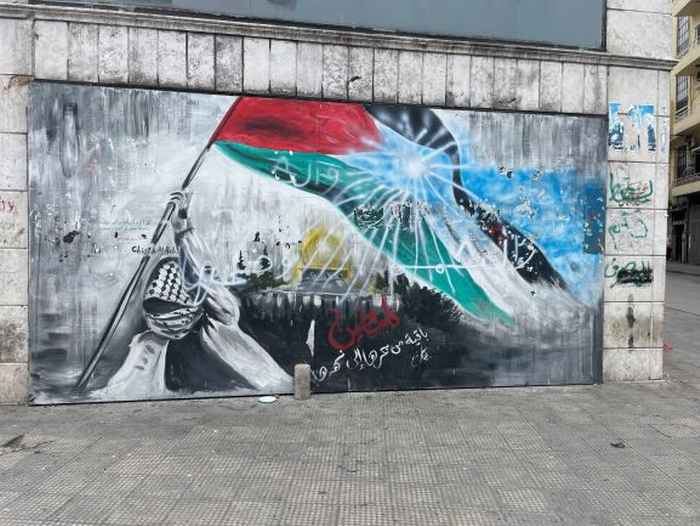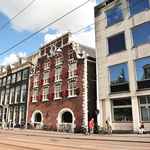Palestine Teaches: Commemoration
- Date
- 4 January 2024
- Time
- 17:00 -21:00
- Location
- University Library
- Room
- Belle van Zuylenzaal

How does one commemorate an ongoing catastrophe? What are the roles of monuments in commemoration, and why do they become victims of destruction? In this workshop, participants will watch the short film “Al Hissan,” which tells the story of how scrap metal was welded together by a group of young people in the West Bank, using materials originating from destroyed houses and cars. Cultural practitioners will share insights to help understand the aesthetic and political choices Palestinians make in creating monuments. Participants will leave with a deeper understanding of the role of memorialization and commemoration.
Joining Thursday’s workshop will be Professor Laleh Khalili whose work focuses on martyrdom and commemoration, as well as Palestinian artist Firas Shehadeh and creator of the Jenin Horse Thomas Kilpper
Please join us for the workshop series Palestine Teaches, in which students (and researchers acquire skills to engage with critical scholarship during times of crisis, while simultaneously immerging in community-based learning. For these workshops, we invite academics and practitioners to share their expertise on a variety of topics, while stimulating students to learn from Palestine as a source for critical scholarship.
In the last month, the whole world has been talking about Palestine. The efforts to educate communities about settler colonialism, living under occupation and the history of Palestine has been vital. However, focusing on talking about Palestine could quickly see us fall into a trap that has been laid for decades in the European institutions – with voice and power in the wrong place. As such, as part of the Humanities “Conflict and Heritage” stream supported by AHM and ASCA we will work to create a new form of learning from Palestine. A simple change in word, but with huge reverberations.
Palestine Teaches will be an interdisciplinary and experiential workshop series in which participants through guidance from varying facilitators will learn a new vocabulary and have experiential engagement whereby learning will be gained not through facts but by an affect which will create a lasting knowledge. In shifting from Palestine instead of about Palestine, we, as a learning community, get to see Palestine (and Palestinians) not as a subject to decades of colonial violence but as an agent in which we can actively learn from. In focusing on an active participatory experience, we aim for the learning community to leave with a deeper understanding of the embodied nature of sumud.
Key to this workshop series is ensuring that all participants, despite their personal backgrounds and distinct intellectual area of interest, that each feels able to contribute to all discussions in a safe, relaxed and supportive environment. As such, the workshops will make use of different pedagogy to create a collective which has some form of shared starting point to work from. Joining the workshop will allow participants to develop their political reflexivity and skills to be a scholar during crisis.
The Palestine Teaches workshops will take place on Thursday, December, 14th; Thursday, January 4th, and Thursday, February 1st
Participants are requested to sign up by filling in the registration form prior to each session.
We encourage students from our entire UvA community to partake in these workshops. Please keep in mind that the workshops require some preparation. This is to ensure a dynamic and collaborative learning environment based on dialogical understanding. For this reason, we have a limited number of spots.
